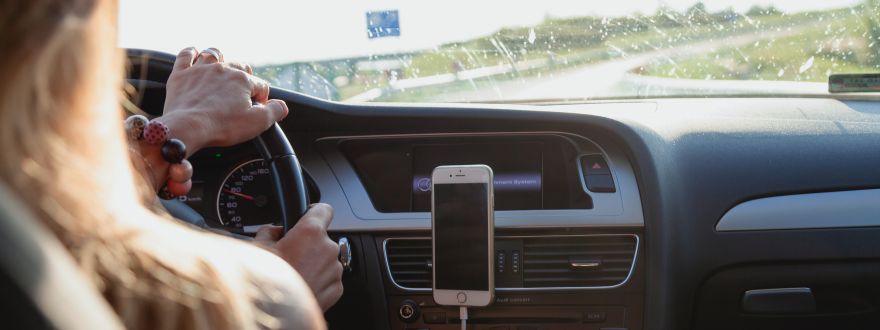
With much of the country practicing social distancing and self-quarantines due to the coronavirus pandemic, many companies are looking for delivery drivers to get groceries, takeout meals and other items to customers.
If you’re looking to pick up some extra cash as a delivery driver and using your own car, be aware of possible auto insurance consequences.
You may need a commercial auto policy if you’re a delivery driver. That’s because food delivery is business use of the vehicle, not personal use.
Car insurance companies see business use as a higher risk than personal use, and charge higher rates accordingly. Delivery drivers are more likely to get into accidents and file car insurance claims. Commercial auto insurance policies aren’t only for food delivery, but also any type of work could fall under business use, like delivering packages and driving customers.
If you start driving as a job (whether full-time or as a side hustle) and don’t tell your auto insurance company, you could face a claim denial in the future if you cause an accident.
Some auto insurance companies are responding to the COVID-19 pandemic by extending coverage to customers who are using their personal vehicles to make deliveries. Below are two companies we offer insurance through that have pivoted to serve their customers in an ever-changing landscape.
- Liberty Mutual Insurance has expanded coverage for customers who use their personal vehicles to deliver food and medicine.
- Travelers will provide coverage to customers who use their personal auto to make food, grocery, pharmacy and medical supply deliveries.
If you start working as a delivery driver and use your own car, speak with your car insurance agent and ask if your insurer has made any changes for delivery drivers during the COVID-19 outbreak.
What Companies Provide Car Insurance For Delivery Drivers?
Depending on who you’re driving for, your employer might provide auto insurance. If you’re a driver, make sure you understand where the employer’s coverage ends and begins, and whether there’s a coverage gap between the employer policy and your personal auto insurance policy.
Is There a Coverage Gap Between My Personal Auto Insurance and Insurance Through My Employer?
This is where things can get tricky. Depending on your car insurance company and your employer’s insurance, there may be a gap between both insurance policies. For example, you might have coverage through your employer while driving a takeout order to a customer, but not while driving to the restaurant to pick up the order.
If you’re in a car accident during a gap in coverage, your personal car insurance company could deny coverage, meaning you could be stuck with property damage and medical bills.
The best strategy: Call your car insurance company before using your car for work. If you don’t have the right car insurance for your delivery work, you could get stuck paying big auto accident bills yourself.
What If I Own a Small Business and I Rely on Delivery Drivers?
If you own a small business, like a restaurant or store, and you rely on employees to deliver goods in their personal vehicles, both you and your employees may need certain types of commercial insurance.
For starters, your drivers generally need a commercial auto insurance policy if they are using personal vehicles to deliver goods or services. As a business owner, you could be held liable if one of your drivers causes an accident and doesn’t have the right type of insurance. Speak with your business insurance agent about a business owner policy (BOP) and what types of coverages to add.
One commercial coverage type you can add as a business owner is non-owned car insurance. This would cover injuries and property damage if an employee causes an accident while driving their personal vehicle on behalf of your business. But non-owned car insurance is for drivers who occasionally use their personal cars for work.
If your drivers are using their own cars for delivery on a regular basis, they likely wouldn’t be covered under non-owned car insurance. They should look into a commercial auto policy.
Article courtesy of Forbes. To see the article in its natural habitat, click here.





